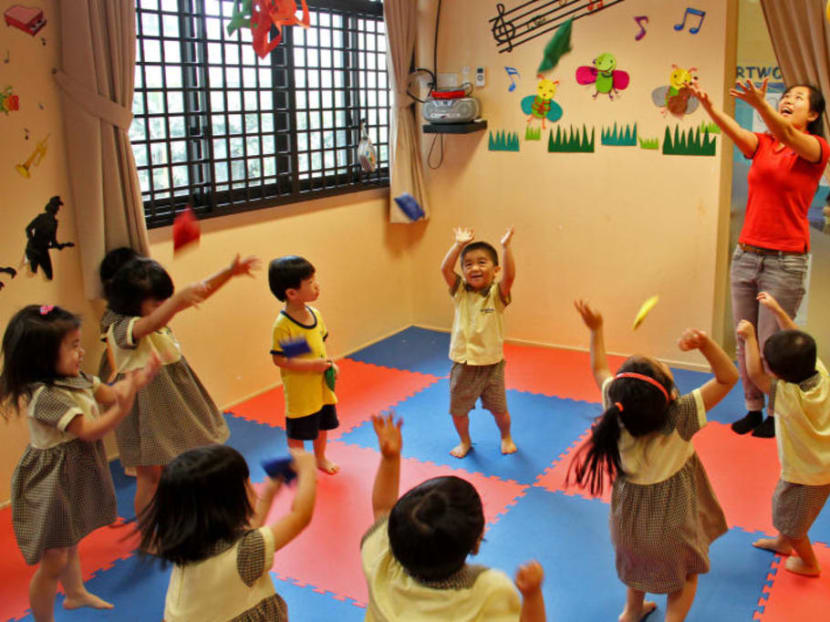Want your kids to have a high quality preschool education? Here’s what it means
Deputy Prime Minister Heng Swee Keat announced in Budget 2020 that the Government will be doubling its annual spending on the early childhood sector from the current S$1 billion to S$2 billion within the next few years.

Government's move to double its annual spending on the early childhood sector is part of its efforts to improve the affordability, accessibility and quality of pre-school services.
Deputy Prime Minister Heng Swee Keat announced in Budget 2020 that the Government will be doubling its annual spending on the early childhood sector from the current S$1 billion to S$2 billion within the next few years.
The move is part of the Government’s efforts to improve the affordability, accessibility and quality of preschool services. This is indeed good news for parents, many of whom are concerned about whether their children are receiving high quality care and education in the preschools. But what is high quality in the context of a Singapore preschool?
QUALITY IS SUBJECTIVE
The term quality is very subjective and complex because there are so many ways to define this.
Some would define quality preschool education by accessibility, affordability and availability of preschool services to all children in Singapore.
Others may view quality in terms of structural factors such as class size, staff-to-child ratio, teacher qualifications; and taking into account factors such as teacher-child relationships, classroom experiences and interactions, and programming./
Yet a few may assert that quality is to do with the type of curriculum and its delivery in the preschool.
However, the first thing we need to accept about the education of young children is that it involves key stakeholders working together to achieve higher quality preschool education.
Hence, the question is: “Who are these key stakeholders and how do they work together?”
If we consider the proximity of various stakeholders to the child, we can perhaps see how their contributions are essential in the care and education of a preschool child in Singapore.
IT BEGINS WITH PARENTS
Being closest to the child, parents play a critical and significant role in a child's life. For instance, even before the child enters a preschool, the child would have started the process of learning through their parents.
As neonatal research reveals, parent-child interaction and bonding evolving from infancy are invaluable teaching and learning moments for a young child. The parent is thus crucial as the child's first teacher.
Preschool teachers, on the other hand, become an important partner to the parent when the child enters the preschool.
The relationship between the parent and teacher can greatly enhance the care and education of the child, both at home and the preschool.
The stronger the relationship, the more seamless is the transition and the greater the child's level of engagement in learning.
For example, involving parents in activities at the preschool deepens the child's sense of identity and belonging to the preschool.
CRUCIAL FOR PARENTS TO PARTNER TEACHERS
Research has indicated often that the relationship between teachers and parents is paramount to ensuring positive outcomes for children in preschool, primary school and even beyond.
Yet one of the issues that surfaced in conversations with teachers is that while parents understand the importance of play in the early years, they are more concerned about their children being academically ready for school.
This remains an obstacle in building a solid foundation for the joy of learning and greater well-being of the child.
Interestingly enough, this can be less of an obstacle when parents and teachers start to collaborate and work closely with the objective to extend and enrich a child's learning experiences.
International and local research already reveals that children who are exposed to a holistic and play-based curriculum would be prepared not only for school life but for work life and beyond.
As parents are closest to a child, they have far reaching and more lasting impact on their child’s learning outcomes.
Children need to be free to learn, explore, make choices, take risks and figure things out through interaction with people, objects and events in a safe and nurturing environment.
Whilst we all agree that we want what works best for every child, we should also learn to accept that children need a curriculum to help them flourish and develop life skills first.
These can include things not readily taught at school but acquired only through relationships such as getting along with others, making good decisions and coping with life stressors and demands.
Hence, the quality of a preschool is determined by the quality of relationship parents have with the teachers, and how much parents support a developmentally appropriate curriculum which prepares their children not only for school but for work and life.
The act of living and learning are unique life skills which are certainly not acquired through pencil and paper activities seated at a desk.
ABOUT THE AUTHOR:
Dr Nirmala Karuppiah is Head of Education at the Centre for Research in Child Development, National Institute of Education, Nanyang Technological University.






